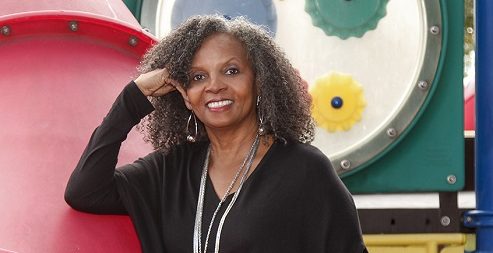

When Rosemarie Allen, Ed.D., was studying child development at a California university on her way to becoming a teacher, the state required five years of higher education to earn a license to teach.
Unable to afford a fifth year of school and needing to work, Allen took a job in child care instead, where the average worker makes less than the average schoolteacher. Allen says that difficult route into a long career in education, including the past 17 years at Metropolitan State University of Denver, is one reason why she decided to endow a scholarship for students of color in the University’s teacher-preparation program.
“Many students of color enter our program with the full intention of becoming licensed, but to get licensed they have to student-teach,” she said. “You can’t work while you student-teach, so they have to quit their jobs, and many students can’t afford to so they end up moving to non-licensure.”
Allen, an associate professor of Early Childhood Education who is also teaching remotely at Georgetown University this fall, said graduates without a teaching license make on average $15,000 less per year working in child-care centers in Colorado instead of public schools.
“They’re taking the same classes as licensed teachers in college, but because they couldn’t afford to student-teach, they’re making less after graduation and end up on this track for less income throughout their careers,” she said.
The Dr. Rosemarie Allen Family Endowment, established by Allen and her husband, Don, will provide one $5,000 scholarship annually for a student of color studying Early Childhood Education or Elementary Education starting next fall. Allen is one of the first current faculty members in the School of Education to endow a scholarship.
“We need this now more than ever, especially with the racial climate that we’re in,” Allen said. “We have a crisis in terms of people of color in the field of teaching. The teacher workforce is 80% white women.”
In addition to an overall teacher and staff shortage that has caused some Colorado school districts to cancel classes this fall, having teachers of color specifically improves critical outcomes for students of color.
Allen said a child taught by just one same-race teacher improves their chances of graduating from high school; having multiple same-race teachers makes a student more likely to go to college.
“Representation matters,” she said. “It’s also good for white children – most of our white children have never seen a person of color in a position of authority. They’re accustomed to only seeing people of color serve them, as cafeteria workers or bus drivers.”
Allen hopes her endowment will have a ripple effect in Colorado. She has been in touch with a state legislator about incorporating similar language into a teacher-workforce-diversification bill this upcoming legislative session, and she encourages others to give to the scholarship endowment so it can support more Roadrunners.
“Rosemarie is utterly devoted to this University and our students,” said School of Education Dean Elizabeth Hinde, Ph.D. “This legacy scholarship endowment will help relieve the financial burden that causes so many fantastic students who would be excellent teachers to drop out of teacher-licensure programs.”
